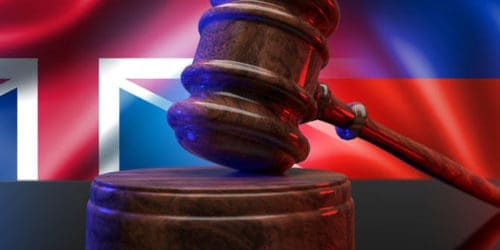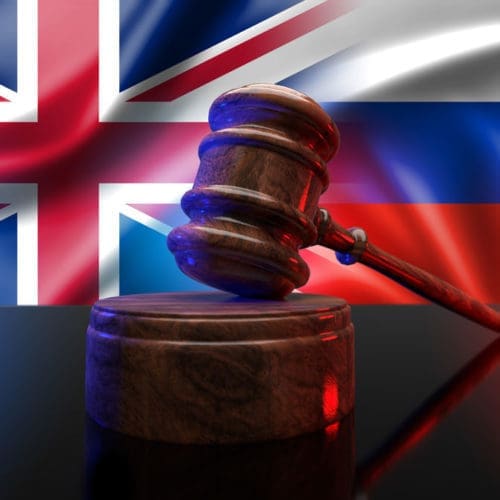Double jeopardy in sanctions law?: The Office of Trade Sanctions Implementation starts to function
October 2024The Office of Trade Sanctions Implementation (OTSI), launched in October 2024, and the Office of Financial Sanctions Implementation (OFSI) are two key UK authorities enforcing the UK’s sanctions regime. Each agency plays a distinct role: OFSI, part of HM Treasury, enforces financial sanctions, while OTSI, under the Department for Business and Trade, focuses on trade-related sanctions. Together, these agencies ensure compliance with UK sanctions, particularly in response to recent geopolitical issues, such as Russia’s invasion of Ukraine.
OTSI has been created pursuant to The Trade, Aircraft and Shipping Sanctions (Civil Enforcement) Regulations 2024 (TASSCER). This is motivated by a desire to toughen the enforcement machinery around trade sanctions. There have been rising concerns around the possibility that Russia and other rogue regimes are finding ways to evade sanctions rules. Indeed, one of OTSI’s first acts has been to publish on its website a list of red flags which may indicate a transaction would breach sanctions rules.
For those businesses with potential exposure under the financial sanctions regulations (or in need of a licence), it is important to understand how the two regulators will operate and their respective roles and jurisdictions. As we detail below, this may well include engineering and architectural firms as well as insurers and providers of other professional services (such as accountants or lawyers).
The development is of relevance not only to the current extensive restrictions on Russia but also to sanctions rules related to other states (such as Iran and North Korea). Recent developments relating to Iran (following its attack on Israel on 3 October) led to existing sanctions being extended against that country. Credible allegations that North Korea is providing military support to Russia in Ukraine may similarly lead to additional restrictions against the Pyongyang regime.
Distinct Roles of OTSI and OFSI
Within the general corpus of sanctions rules, there are two broad types of restrictions that may be imposed. These are (i) asset freezes which limit the ability of targeted individuals to transfer or receive funds or other non-cash resources and (ii) trade restrictions which prohibit the provision of certain goods and services to designated jurisdictions.
- OFSI administers sanctions against designated individuals and entities, implementing asset freezes, financial transaction restrictions, and related prohibitions under the Designated Persons regime. This regime ensures that UK persons do not engage financially with named individuals or entities. It has jurisdiction to grant licences for businesses
- OTSI enforces broader trade-related sanctions, such as bans on the direct or indirect provision of professional and business consultancy services to persons connected with Russia (whether or not they have been placed on the OFSI sanctions list). OTSI’s role includes issuing civil penalties and requesting compliance information from businesses engaged in international trade.
It is also worth noting that each of these broad groupings of restrictions are backed up with anti-circumvention prohibitions (Regulations 19 and 55 of the Russia (Sanctions) (EU Exit) Regulations 2019), meaning parties can be at risk for structuring a transaction in such a way as to try to get around the ban but still achieving the same ends.
In parallel, the export of certain goods outside the UK (including those listed on the military equipment list or dual use goods) requires an export licence. The issue of export licences will continue to be administered by the Export Control Joint Unit, which sits within the Department for Business and Trade.
OTSI’s Enforcement Powers and Parent Legislation
OTSI’s authority stems from the Trade, Aircraft, and Shipping Sanctions (Civil Enforcement) Regulations 2024 (TASSCER). This legislation empowers OTSI to:
- Impose civil penalties up to £1 million or 50% of the breach’s value,
- Request information to monitor and enforce compliance, and
- Enforce reporting obligations from relevant sectors such as financial and legal services.
These trade-related sanctions complement OFSI’s financial sanctions, providing a comprehensive framework for enforcing the UK’s sanctions on both trade and financial fronts.
Examples of “trade bans” that will now be overseen by OTSI
The Russia (Sanctions) (EU Exit) Regulations 2019 includes a number of trade bans which will now be overseen and enforced by OTSI. The most prominent of these is the ban on “professional and business consultancy services” to “persons connected with Russia”. The scope of the prohibition includes architectural and engineering services, as well as services related to accounting, advertising, auditing, business and management consulting services, IT consultancy and public relations.
Insurers and intermediaries are also affected. They are proscribed from providing insurance or reinsurance related to aviation and space goods or energy related goods (Regulation 29A, 44 and 45), gold, liquefied natural gas, jet fuel or other oil and oil products.
In relation to oil and oil products, OTSI will oversee the bans on importing or acquiring oil, oil products, coal, gold and diamonds, liquefied natural gas, metals or iron or steel directly or indirectly from Russia as well as any related financial or technical services. However, the rules on maritime transportation of Russian oil to third countries (Regulation 46Z9A-46Z9D of the Russia Regulations) will continue to be governed by OFSI.
These are just some of the prohibitions for which OTSI is now responsible. Others include technical assistance related to aircraft and ships (Regulation 46A).
Definition of a “Person Connected with Russia”
Under Regulation 21 of the Russia (Sanctions) (EU Exit) Regulations, a “person connected with Russia” includes:
- Individuals ordinarily resident in Russia,
- Entities incorporated or constituted under Russian law, and
- Entities controlled directly or indirectly by Russian persons.
Understanding this definition is vital for businesses to assess potential compliance issues when dealing with individuals or entities that may not be designated but still connected to Russia
The definition of a “person connected with Russia” may seem straightforward, but English law can sometimes recognise that an individual may be simultaneously resident in multiple countries. This adds complexity, especially for individuals with substantial connections in more than one jurisdiction.
Red flags: knowing what to look for when staying sanctions compliant
As mentioned above, OTSI has published a list of red flags which should put businesses on alert as to the risk of a transaction violating sanctions. Some of these are listed below:
- Sudden changes in business activity after 24 February 2022, or after changes in export controls / sanctions e.g. new importers or exporters of Common High Priority List (CHPL) items, especially parties located at the same address as a sanctioned entity;
- False, inaccurate, or missing documentation (e.g. false declarations of export authorisation)
- Concealing the end user: e.g. circumventing shipments through a third country or multiple third countries, which may include the use of: shell companies, front companies, intermediaries, brokers, and/or layered letters of credit;
- Inconsistencies in the transaction, e,g. shipping route is abnormal or order includes unusually high quantities of goods;
- Suspicious customer information, e.g. reference addresses which appear more residential than business premises
- Customer has connections of concern, for example a branch, subsidiary, or parent company in Russia or one or more Russian or Belarussian shareholders.
The guidance also sets out best practices for companies to follow for staying compliant. This includes checking names and addresses against sanctions lists (such as the OFSI consolidated list) and, where necessary, conducting additional due diligence and seeking certifications that parties in Russia and Belarus will not be involved in the transaction. It should of course be added that whilst the OTSI guidance (like much of sanctions law currently) is focused on Russia, this advice also holds good in relation to other regimes.
Conclusion
OTSI and OFSI serve complementary functions within the UK’s sanctions enforcement framework. OFSI, part of HM Treasury, manages the Designated Persons regime, focusing on financial restrictions, while OTSI, under the Department for Business and Trade, enforces trade compliance. Together, they uphold the UK’s sanctions policy, targeting both financial and trade aspects. Understanding these distinctions is crucial for businesses involved in international trade and professional services.
For businesses, the ramping up of sanctions enforcement machinery means one thing: compliance efforts must be redoubled. Firms should check that they have in place robust and effective procedures to avert sanctions breaches given the increased probability of detection and punishment. A good place to start is staff training: providing reminders on red flags and things to avoid, as well as providing a clear internal reporting structure.
Download PDF







